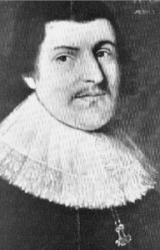Planning worship?
Check out our sister site, ZeteoSearch.org,
for 20+ additional resources related to your search.
- |
User Links
Person Results
George Frideric Handel

1685 - 1759 Person Name: Handel Composer of "GOPSAL" in The Scottish Hymnal George Frideric Handel (b. Halle, Germany, 1685; d. London, England, 1759) became a musician and composer despite objections from his father, who wanted him to become a lawyer. Handel studied music with Zachau, organist at the Halle Cathedral, and became an accomplished violinist and keyboard performer. He traveled and studied in Italy for some time and then settled permanently in England in 1713. Although he wrote a large number of instrumental works, he is known mainly for his Italian operas, oratorios (including Messiah, 1741), various anthems for church and royal festivities, and organ concertos, which he interpolated into his oratorio performances. He composed only three hymn tunes, one of which (GOPSAL) still appears in some modern hymnals. A number of hymnal editors, including Lowell Mason, took themes from some of Handel's oratorios and turned them into hymn tunes; ANTIOCH is one example, long associated with “Joy to the World.”
Bert Polman
George Frideric Handel
John Goss

1800 - 1880 Person Name: Sir John Goss, Mus. D. Composer of "REVAN" in The Scottish Hymnal John Goss (b. Fareham, Hampshire, England, 1800; d. London, England, 1880). As a boy Goss was a chorister at the Chapel Royal and later sang in the opera chorus of the Covent Garden Theater. He was a professor of music at the Royal Academy of Music (1827-1874) and organist of St. Paul Cathedral, London (1838-1872); in both positions he exerted significant influence on the reform of British cathedral music. Goss published Parochial Psalmody (1826) and Chants, Ancient and Modern (1841); he edited William Mercer's Church Psalter and Hymn Book (1854). With James Turle he published a two-volume collection of anthems and Anglican service music (1854).
Bert Polman
John Goss
Samuel Crossman
1623 - 1684 Person Name: Sam. Crossman Author of "My life’s a shade, my days" in Hymns Crossman, Samuel , B.D. From A. Wood's Athenae Oxonienses (1720, vol. ii. p. 730) we gather all that is known of this hymnwriter. Wood says concerning him:—
"Samuel Crossman, Bachelor of Divinity of Cambridge, and Prebendary of Bristol, son of Samuel Crossman, of Bradfield Monachorum, in Suffolk. He hath written and published several things, as The Young Man's Monitor, &c, London, 1664, 8vo., and several sermons, among which are two sermons preached in the Cathedral of Bristol, 30th Jan., 1679, and 30th Jan., 1680, being the days of public humiliation for the execrable murder of King Charles I, printed at London, 1681, &c.; also a sermon preached 23rd April, 1680, in the Cathedral Church of Bristol, before the Gentlemen of the Artillery Company newly raised in that City, printed at London, 1680, &c; and, "An Humble Plea for the quiet rest of God's Ark," preached before Sir Joh. Moore, Lord Mayor of London, at St. Mildred's Church in the Poultrey, 5th February, 1681, London, 1682, 4to, &c. He died 4th February, 1683, aged 69 years, and was buried in the South Aisle of the Cathedral Church in Bristol" [of which he had been appointed Dean a few weeks before].
Crossman's contributions to hymnody were given in a small pamphlet entitled:—
The Young Man's Meditation, or some few Sacred Poems upon Select Subjects, and Scriptures. By Samuel Crossman, B.D. London, Printed by J. H., &c, 1664.
This pamphlet, which was reprinted by D. Sedgwick, London, 1863, contains 9 sacred poems. Of these the following are in common use:—
1. My life's a shade, my days. Resurrection. This is in 6 stanzas of 4 lines, together with a chorus to each stanza of 4 Lines. It is sometimes given as "Life is a shade, my days," as in Kennedy, 1863.
2. Sweet place, sweet place alone, Pt. i. Jerusalem on high, Pt. ii. These two parts form one poem on Heaven. The most popular portion is Pt. ii. This is given in numerous collections in Great Britain and America. Part i. is not so extensively used. From the two parts the cento "Earth's but a sorry tent," in the Dutch Reformed Hymns of the Church, N. Y. 1869, is also taken.
3. Farewell, poor world, I must be gone. Death anticipated. This is given in the Comprehensive Rippon, 1844, and in a few of the older American hymnbooks.
4. My song is love unknown. In the Anglican Hymnbook, 1863
-- John Julian, Dictionary of Hymnology (1907)
Samuel Crossman
Henry Lawes

1596 - 1662 Person Name: H. Lawes Composer of "[My life's a shade, my days]" in Hymns Born: January 5, 1596, Dinton, Wiltshire, England.
Died: October 21, 1662, London, England.
Buried: In the cloisters of Westminster Abbey, London, England.
Lawes, tutor to the daughters of the Earl of Bridgewater, is best known as a composer. He became a Gentleman of the Chapel Royal in 1626, and a member of the "King’s Musick" in 1631. He wrote over 400 vocal pieces, as well as anthems and instrumental compositions. His works include:
Choice Psalmes Put into Musick for Three Voices, 1648
Ayres and Dialogues (London: 1653)
Sources:
Frost, p. 680
Hughes, pp. 467-68
Nutter, p. 460
Stulken, p. 292
--www.hymntime.com/tch
Henry Lawes
H. Ellis Wooldridge
1845 - 1917 Person Name: H. E. W. Arranger of "[My life's a shade, my days]" in Hymns b. 3/28/1845, Winchester; d. 2/13/17, London; English music scholar
LOC Name Authority File
H. Ellis Wooldridge


 My Starred Hymns
My Starred Hymns


